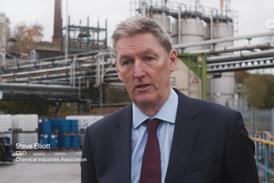The UK’s Industrial Strategy recognises high energy cost as a key barrier to investment in the UK yet our Carbon Price Support mechanism continues to inflate electricity costs for business, long after achieving its stated aim of ending coal generation. The UK Government must act to remove this unnecessary, additional carbon cost from GB electricity bills to improve the competitive position of British manufacturers.
The Carbon Price Support (CPS) was introduced on 1 April 2013, to bolster the carbon price signal faced by fossil-fired electricity generation in Great Britain (GB) and thereby encourage the switch from coal to lower carbon generation. Since its creation, the CPS has sat alongside the UK’s main carbon market – then the EU Emissions Trading Scheme (ETS) and now the UK ETS – adding to the overall carbon price that UK power stations must pay to generate electricity. The UK is the only country in Europe that levies a carbon tax on top of the carbon price arising from its ETS.
The CPS rate (£/tCO2) is set by the Treasury. The Treasury confirms the CPS rate at each budget, two years in advance of delivery, and all revenue from the CPS is retained by the Treasury; in 2024-25 the Government recouped £400 million in CPS tax receipts. The CPS rates were originally designed to top up EU ETS allowance prices, as projected by the Government, to the overall target price of £30/tCO2 (i.e. EU ETS price + CPS price = £30/tCO2) – the price considered necessary to drive coal off the grid.
This increase in the total carbon price applied to the UK power sector has had an appreciable impact on driving the decarbonisation of electricity generation. In 2013 coal accounted for 39% of the GB generation mix and today it accounts for 0%. The UK’s last coal plant, at Ratcliffe-on-Soar, closed last year. Yet, the impact is subtle. The power sector has a captured market, billions of pounds worth of subsidy (e.g. through Contracts for Difference and Renewables Obligations), and ready alternative technologies that enable it to effectively pass-through the cost of the transition to their customers, in the wholesale portion of our electricity bills.
Recognising the impact of this cost pass-through on business competitiveness and household energy bills, the Government announced that the CPS rate would be capped at a maximum of £18/tCO2 in Budget 2014, and this freeze persists today. Fears for the competitiveness of energy intensive industries, led the Government to also introduce compensation measures aimed at alleviating the costs of the EU ETS and the CPS. The Energy Intensive Industries (EII) compensation scheme provides indirect carbon cost compensation to specified sectors, provided they can demonstrate that they can meet strict eligibility requirements for electricity-intensity. The scheme helps to mitigate the impact on those most heavily affected but this represents only a handful of firms in a handful of sectors.
We are now in a situation where the UK carbon price has traded consistently above the CPS target price of £30/tCO2 since the start of the post-Brexit UK ETS, in 2021. Yet, despite us having successfully pushed coal from the grid the CPS rate of £18/tCO2 is still applied to the power sector, with an estimated cost to our sector of >£100 million every year or £8/MWh of electricity consumed. This is on top of the pass-through cost of the UK ETS scheme as applied to the power sector, which comes in at >£300 million per year or £21/MWh of electricity consumed.
The UK’s Industrial Strategy recognises high energy cost as a key barrier to investment in the UK and the UK’s independent climate advisors highlight high electricity cost as a key barrier to investing in the electrification of heat. Nonetheless the CPS continues to inflate electricity costs for businesses and households, long after having achieved its primary function of ending coal. The UK Government must act to remove this unnecessary, additional carbon cost from GB electricity bills. Doing so would improve the competitive position of British manufacturers without impact on the power sector transition, which now receives a strong and consistent carbon price signal from the UK ETS.






















